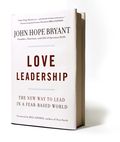By Dave Kovaleski
HIGHLIGHTS
Speakers on the “hot” list deliver a message that helps attendees navigate the challenging business environment.
“These are confusing and confounding times,” says Bernie Swain, chairman of the Washington Speakers Bureau. And during times of adversity, people are looking to make positive changes to adapt to the changing environment. That, says Swain and other experts, is what’s behind the current shift to weightier, more relevant themes on the speakers’ circuit.
Swain says organizations are gravitating toward keynote speakers in three broad areas: world affairs, current events, and business. About 85 percent of his speakers are being booked in those areas, up at least 20 percent from a few years ago.
Michael Frick, president at Speakers Platform in San Francisco, is seeing the same trend, especially in the business category. Five years ago, he rarely got requests for economists. “All of a sudden, they are the hottest group,” says Frick. Ethics is another hot topic, Frick says, which he says relates to a general breakdown in the trust of institutions, such as government, big business, and Wall Street.
As groups search for more meat in their meetings, the popularity of motivational, inspirational, athlete, and celebrity speakers has waned, says Swain and others. However, the big names can still draw when they can tailor a relevant message.
Tom Neilssen, chief executive officer at BrightSight Group, Princeton, N.J., agrees. During the 1990s and most of the 2000s, keynote content was secondary because, for the most part, businesses were doing well. “It’s always nice if the audience can recognize the name of the speakers, but in the end, it really is about content over celebrity,” says Neilssen. “Many organizations are recognizing that if they are going to bring a speaker into their meeting and take up 60 minutes or two hours of their attendees’ time, the message better help the attendee become a bit smarter, a bit better at what they need to do to navigate these challenging times.”
Three or four years ago, agrees Swain, planners weren’t overly concerned with the content of the speech with a big-name speaker like a Clinton. “Today, planners say, ‘I need to bring in a Bill Clinton or a Tony Blair, and I need
them to talk about this,” he says. Swain says groups aren’t moving away from the big-name speakers, but he is seeing cutbacks on the numbers. Where a few years ago they might book three or four general session speakers, now it’s one or two. “There hasn’t been a fall-off of the big names,” says Swain: Sarah Palin, Bill Clinton, Gordon Brown, and Thad Allen. “But the choices are more relevant to the meeting.” In addition to budgets, it’s about return on investment and accountability, says Frick. Groups don’t want to spend $100,000 on a speaker who has nothing relevant to say.
Who's In Demand?
A sampling of the speakers who are hot this year, from the rosters of the Washington Speakers Bureau, BrightSight Group, Speakers Platform, and Speak Inc.:
Louis V. Gerstner, former chairman and chief executive officer, IBM
Annie Mulcahy, former chair- woman and CEO, Xerox Corp., and chairwoman, Save the Children
Frederic Mishkin, former Federal Reserve Board governor and a professor of banking and financial institutions at Columbia University’s Graduate School of Business
John Hope Bryant, chairman and CEO of Operation Hope; co-founder of Global Dignity; and one of the World Economic Forum’s Young Global Leaders. Author of Love Leadership: The New Way to Lead in A Fear-Based World 
Chip Conley, CEO of Joie De Vivre Hospitality, California’s largest boutique hotel company and author of Peak: How Great Companies Get Their Mojo from Maslow
